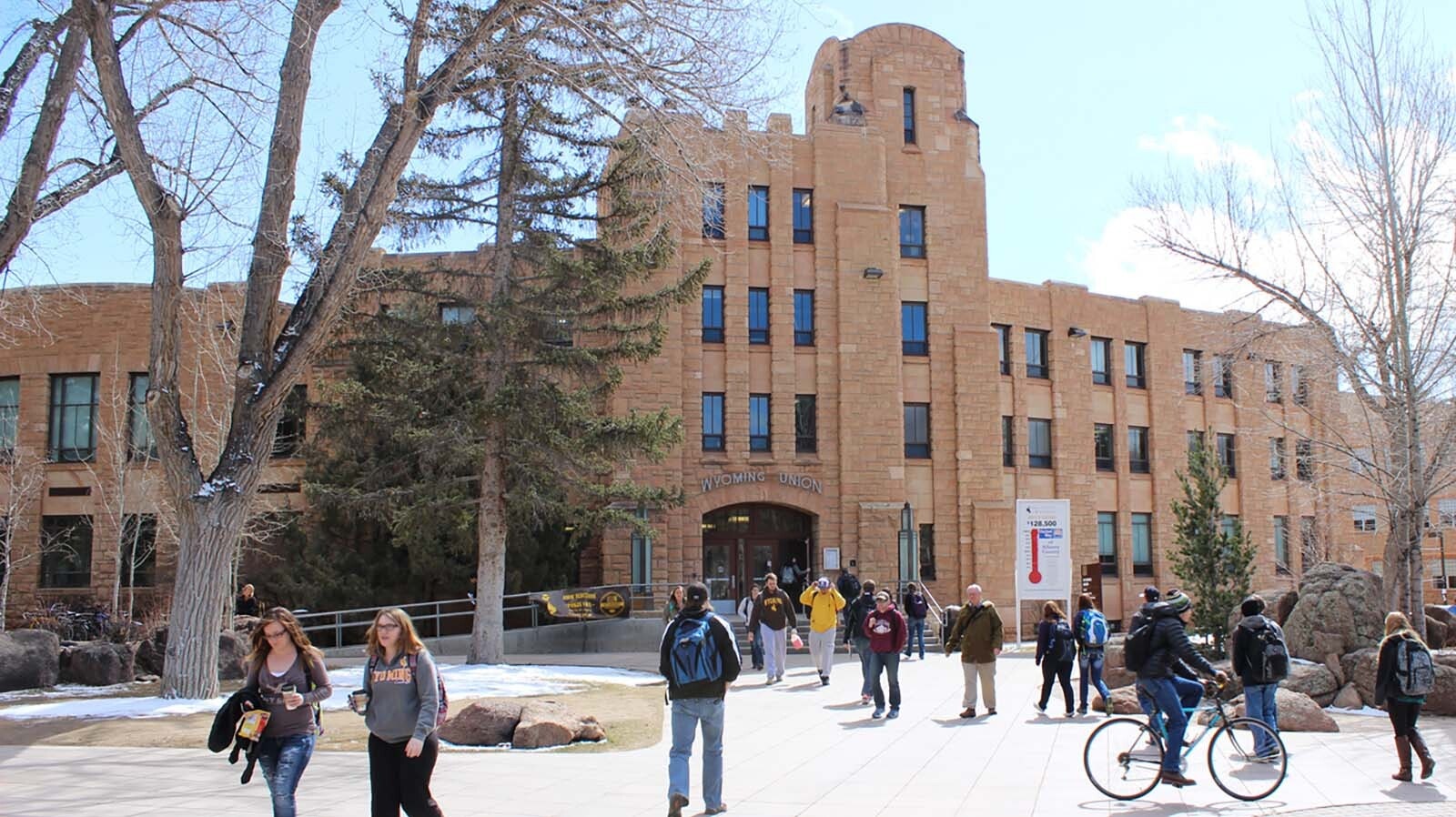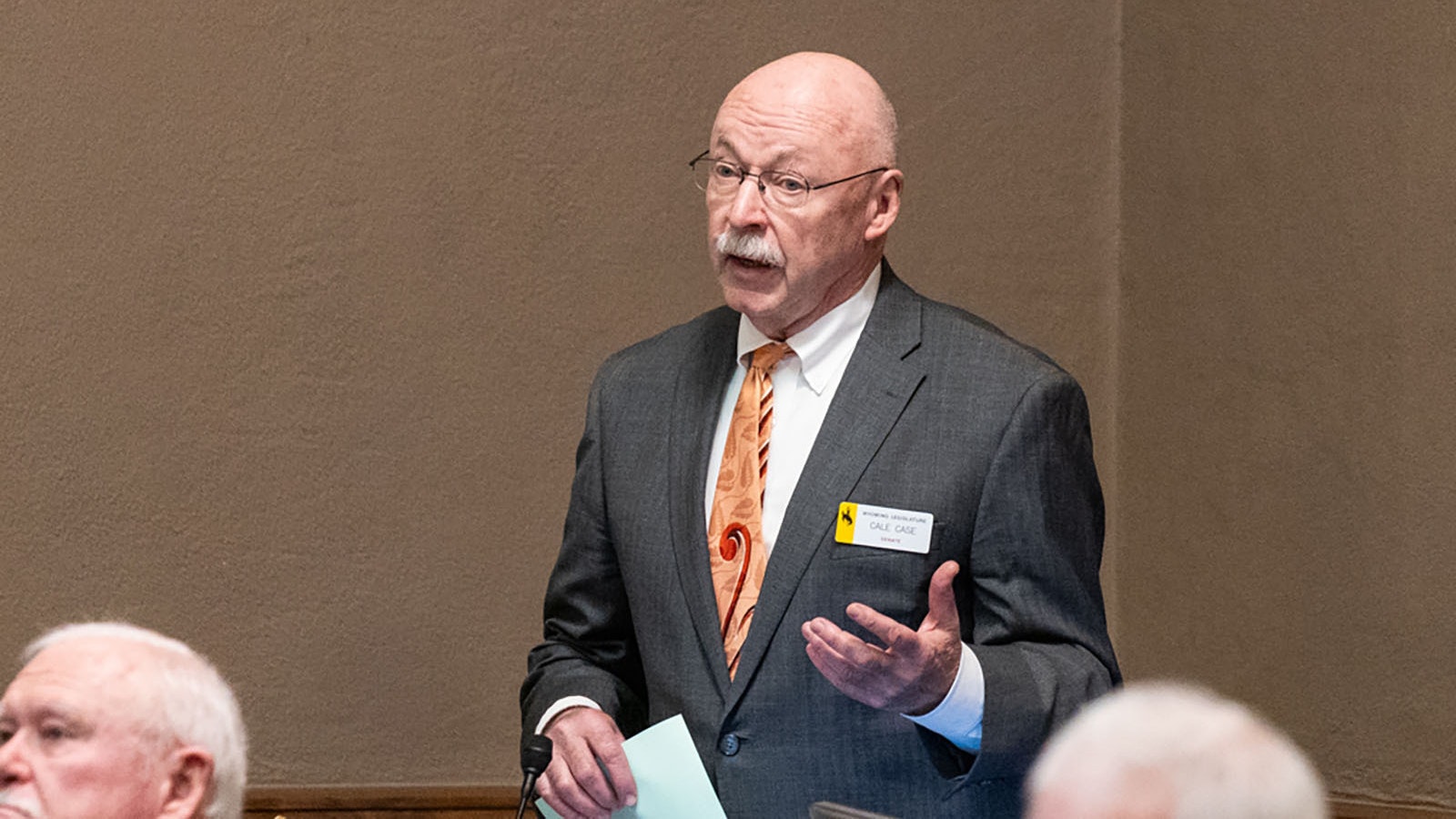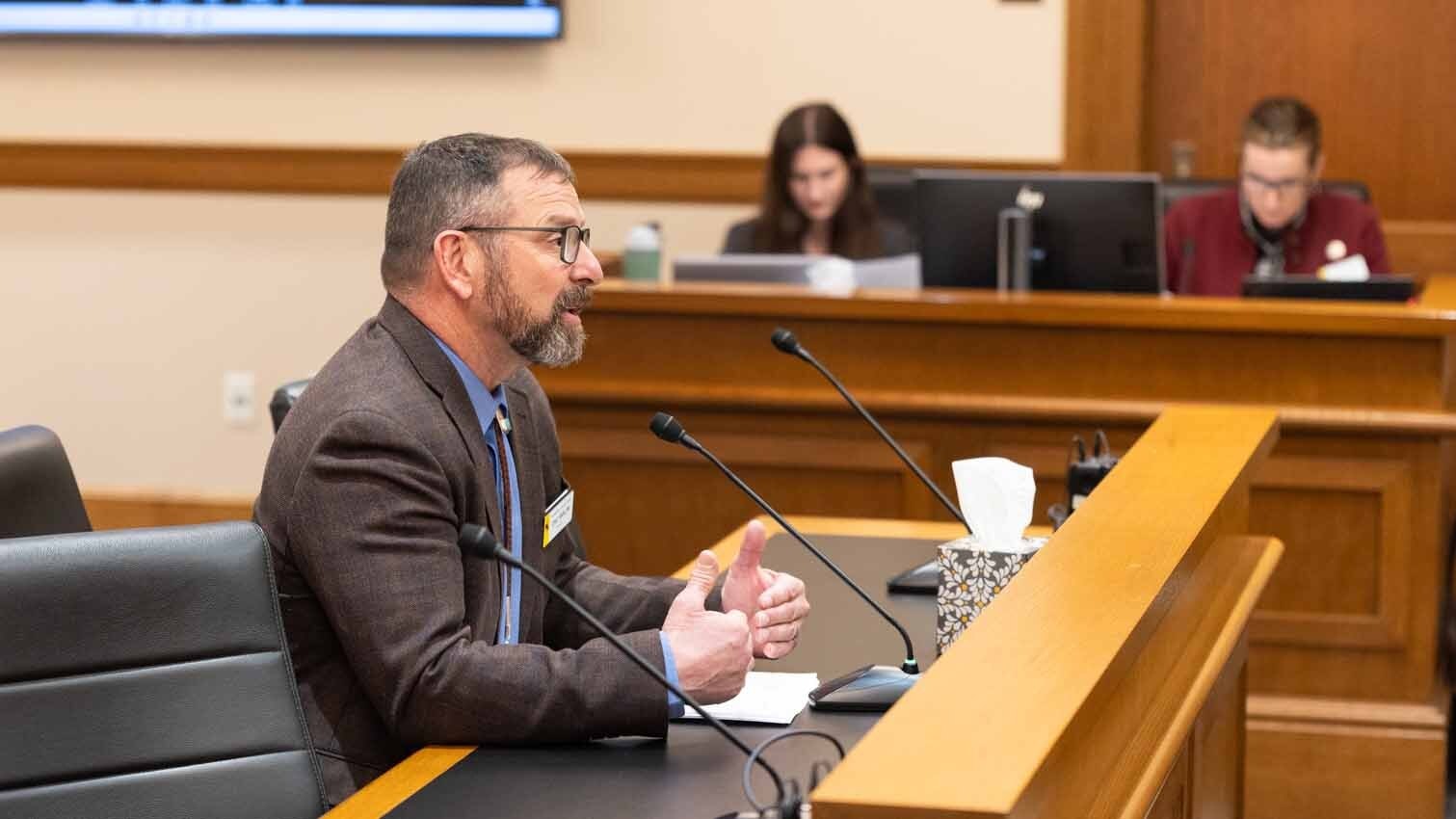The University of Wyoming is trying to improve its public image.
The school has come under fire from the Wyoming Legislature over the past year for issues like diversity, equity and inclusion (DEI) programs on campus. Now, the school is launching a “Wyoming First” agenda for teacher education and putting more effort into actively promoting its Wyoming-focused programs.
UW President Ed Seidel told Cowboy State Daily the school’s top priority is trying to figure out how it can help advance the state.
“We are really trying to make a statement to the state that we’re here for the state,” Seidel said. “It’s very important to us that people understand that we’re here for the whole state, no matter where you’re from, and that means every student, every town, every organization across the state.”
Last year, the Legislature cut funding for the school’s DEI office. In response, the UW Board of Trustees cut the office while still retaining some of its services.
The school also initiated a working group study to explore how DEI was potentially being pursued in less obvious ways at the school.
“We went far beyond just closing that one office,” Seidel said. “What we’re trying to do is to make sure we’re merit-based in everything we do, in terms of admitting people and promoting people at the university, and that we still take care of our communities.”
Seidel said they did receive some pushback to these actions on campus, but the school has been making concerted efforts to prove to their student body they still care about them.
Both Seidel and Jenna Min Shim, dean of the UW College of Education, were at the state Capitol this week highlighting the school’s efforts.
Min Shim is now actively promoting her school’s “Wyoming First” agenda for teacher education, a series of projects that attempt to shape the present and future of the state, while continuing to show a deep respect for its values. Min Shim was named the permanent dean last March.
“My vision for the College of Education is to serve the people of Wyoming first and that’s where this ‘Wyoming First’ comes from,” she said, “and to contribute to the well-being of our citizens through education and also address unique opportunities.”
The school also recently spent $2 million for a 30-second ad during the Super Bowl celebrating Buffalo Bills' quarterback Josh Allen and his connection to the University of Wyoming.
Reaction
Sen. Cheri Steinmetz, R-Lingle, has been one of the most vocal critics of UW’s programming. She told Cowboy State Daily on Thursday she’s pleased with the changes UW has made.
“It is my hope they are moving in a better direction, a more Wyoming-focused direction that honors our values and our culture and our heritage,” she said. “I’m willing to give them every opportunity to do that and help them anyway I can.”
Steinmetz’s Senate File 103 generally prohibits diversity, equity and inclusion efforts and mandates by state agencies and educational institutions. It passed the Senate on a 26-4 vote and is now being considered by the House Labor Committee. A separate bill to make the UW Trustee elections publicly elected is also still alive.
Another vocal critic of the school, Rep. John Bear, R-Gillette, agreed.
“I do think there’s work to be done but I do think they’re headed in the right direction, and I appreciate their effort in that regard,” he said.
Bear said UW still has some work to do when it comes to its budgeting processes, and ensuring the state of Wyoming is getting its return on investment in the school and that the school represents the people of Wyoming.
For more than 30 years, UW has operated on a block grant funding model with the Legislature, which means that the state approves funding for the school, but the school, unless specifically noted, decides how it will spend the money the state gives it.
Steinmetz and Bear both want to explore the option of potentially changing that funding model so the Legislature has much more scrutiny over how UW makes its budget. Bear suggested the idea of having the individual schools at UW to come before the Legislature to get their budgets approved.
“There’s been a gradual moving away from things like Ag and I feel like that college has kind of been neglected, as far as from the overall management of the university,” Bear said. “Having that input from the colleges and our ability to influence the direction of spending could be helpful if it’s something that our constituents demand. If it’s not something that they demand, maybe that’s not necessary.”
Steinmetz proposed the idea of having the Legislature and trustees work on the UW budget together, an arrangement similar to the way that the Select Water Committee and the Wyoming Water Development Commission develop its budget.
She also wants to make sure that students and staff at UW who are residents of countries that are foreign adversaries to America are not doing research on behalf of the governments of those countries, and those countries are not funding any research themselves. A budget amendment she brought seeking to ban these individuals from attending the school as exchange students or being employed as staff was resoundingly rejected in the Senate last week.
‘Wyoming First’
Although UW has been running its Wyoming First programs for some time, it hasn’t branded these efforts under one umbrella until recently. Min Shim said they didn’t previously put much effort into publicizing these efforts, but after traveling around the state, she realized that few people knew what they were up to.
“I think it’s really important, not to just get a pat on our shoulders, but to really help people understand what it is that we do and where our commitment is, so that we can provide a service that they need,” she said.
Wyoming First involves collaborating and partnering with Wyoming stakeholders on various projects, aiming to solve problems like the teacher retention shortage issue head-on. With the Wyoming Teacher Mentor Corps, the school is now on its fourth round of teachers.
“Research shows that one of the reasons why teachers leave classrooms is because of lack of administrative support and mentorship,” Min Shim said. “We are trying to address teacher shortage this way because teacher shortage is not always about not enough people coming into teachers, but also people leaving the profession.”
The school is also trying to advance career and technical education by expanding its Career and Technical Education (CTE) teacher pipeline so that Wyoming students can have access to career pathways that align with the state’s economic needs.
“This work strengthens the workforce pipeline by making sure that local industries have a steady stream of skilled graduates in different areas of CTE,” Min Shim said. “In the long run, I truly believe that what we do ensures that Wyoming’s economy benefits from a home-grown workforce.”
When it comes to DEI, Min Shim said she believes in serving all students equally. Of Asian descent, Min Shim said she most appreciated when she was given opportunities based on her performance, not her ethnic background.
“I actually did not appreciate being singled out because I’m a minority, but being able to be recognized for merit and being able to be recognized for the good work that I or others can provide,” she said. “My commitment is providing high quality and the highest quality education to all students, and they deserve this.”
Seidel also pointed to the fact that the school offers a course solely dedicated to solving Wyoming-specific problems .
“The state funds us and we want to make sure we support the growth of the state, and the well being of the state,” Seidel said. “We focus of course, first and foremost on our students, but then we have other things we do, we do research very often in the spirit of how does this impact Wyoming?”
He believes UW is still seen as a respected institution nationwide.
On Thursday, the school was named one of 187 institutions nationwide as an R1 university by the American Council on Education and the Carnegie Foundation for the Advancement of Teaching, putting the school in the top tier of U.S. research universities, an honor just 4.8% of the nation’s nearly 4,000 accredited, degree-granting schools have reached.
“People across the country see the University of Wyoming as a kind of an up-and-coming place,” he said. “We have a western culture and a kind of western values. There’s a sort of mantra and a feeling about the University of Wyoming (being) a cool place to go.”
Leo Wolfson can be reached at leo@cowboystatedaily.com.







